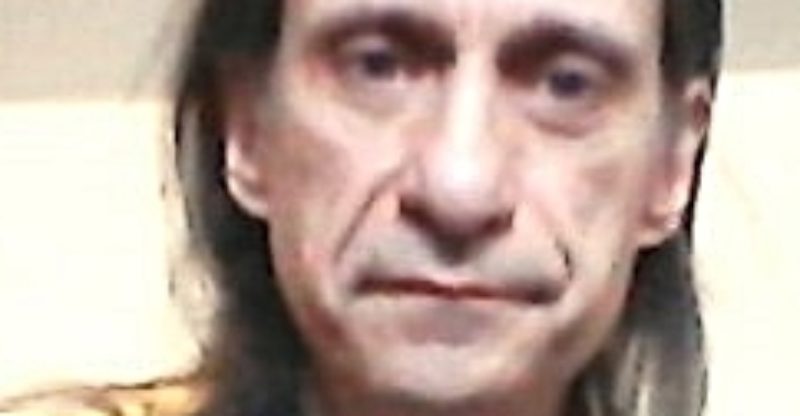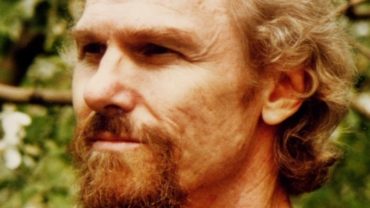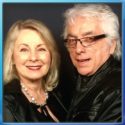The Journey 65. Terry Melanson: Weishaupt’s Illuminati
Publisher RA “Kris” Millegan talks with Terry Melanson about his book, “Perfectibilists: The 18th Century Bavarian Order of the Illuminati,” Adam Weishaupt (Illuminati founder), the infiltration of Freemasonry, the plan to rule the world through recruits who influence those in and around power, and the Illuminati goal of perfecting mankind, which informed the Nazis’ master race atrocities, eugenics and today’s transhumanist agenda (the merging of man and machine by “rulers” who would “perfect” us whether we like it or not).

Kris: Who was Adam Weishaupt, where did he come from, and what was the Illuminati? How did he start, what did he do?
Terry: He grew up middle class, I guess you’d call it. His father taught at Ingolstadt University and was against the Jesuits because they owned it and he wasn’t allowed to teach any of the Enlightenment philosophers – Voltaire or Diderot [etc.]. But he hired Weishaupt to be a lawyer. He took home books that were banned by the Vatican. He had one of the largest libraries in all of Europe. So he’d read books all day and learn about the Enlightenment. And he kind of soured on the Church. He soured on the Jesuits. They didn’t treat him right. They couldn’t let him teach what he wanted to teach. So he said, “I’m going to fight fire with fire. They’re kind of a secret society here. I’m going to make my own.”
He had a student who suggested they sneak around and recruit people and make sure it’s secret. They started recruiting people, like Franz Xaver von Zwack, who had a lot of connections. He joined the Masons, too. He brought back the degrees of the Masons. They said, “Well, we’ll go along the lines of Freemasonry. But we’ll infiltrate them and if we get to be the Grand Master of [that particular] lodge, then we can teach all the rest of the guys and get them to join in our real, real secret society, which was all political.
Freemasons were not allowed really to be that political. So he decided to make a political organization inside, basically, every institution you can imagine. It took him maybe seven or eight years to infiltrate basically all of Bavaria. They made their own lodge in Munich and started spreading out, lodge to lodge to lodge. I count maybe thirty or forty in central Europe that they had control over. So it was a secret society within a secret society that basically taught deism or the worship of reason. They tried to teach the ways of the Enlightenment.
Kris: And at that time you had the Reformation, the Counter-Reformation. And Germany at that time was a lot of different little kingdoms. You had Protestants. You had Catholics. You talk in your book that sometimes you had Catholics dressing up like Protestants starting secret societies and you had Protestants dressing up like Catholics starting them.
Terry: It was the heyday of secret societies in the 18th Century. The Masons came along in 1717. From there they spread around Europe. [They infiltrated the lodge in France two years before the Revolution. Then re-named themselves. The last line of the Illuminati that can be traced lasted into the 1850s.] But we know that they influenced all the revolutionary movements of the 19th Century, the Carbonari [etc.].
Kris: The Illuminati was formed on May 1, 1776. Then you had Phi Betta Kappa formed [as a secret society] on December 5, 1776, at the College of William and Mary [in America]. And two shoots went out from there, one went to Yale and the other went to Harvard. They changed from being secret societies [to fraternities] during the anti-Masonic period here, at Yale in 1832 when they started the Order of Skull and Bones, who claim to be a continuation of the Knights Templar. That woodcut, their logo, is older than 1832 and Skull and Bones. It was used in Canada at a Knights Templar Masonic organization. I think it’s still used there.
Terry: And the pictures that are on there, it corresponds to one of the degrees in the Illuminati, right?
Kris: Right. [Back to the start,] the Illuminati was outlawed in Bavaria and Weishaupt was told to leave. And he went to Saxe-Gotha. And after he died, a bunch of princes went out from there and one married Queen Victoria and I think one went to Greece and another one went to Spain I believe it was.
Terry: The second head of the Illuminati started lodges even as far away as Russia. Way east, way out there.
The Illuminati thought that they were the moral authority. Only they were the enlightened. It was like a technocracy before that word was invented. They regarded themselves as the moral regime over the entire world. Their plan was to take over the entire world and make sure that only they had say over the princes, could make the laws, could tell you what to do, what was wrong, through all the policy-makers and advisors around rulers, to recruit them without the princes knowing that they were being influenced.
They believed what Hegel believed. They believed in the progress of man. That we could progress until we were perfected. [Hence the title of my book, PERFECTIBILISTS.] What they meant was that they were the perfectionists, the “perfectibilists,” “If you join us, we’re the ones who have the answers.”
Bruce de Torres: You just described what we can trace through the 19th Century and into today. It sounds like the eugenics and the brutality of our world leaders today and much that unfolded in the last two hundred years.
Terry: They influenced the 19th Century so much, you could write books and books and books about it. They influenced all the revolutionary movements.
Kris: They created this structure of cell systems.
Terry: Weishaupt at the top and two at the side and two at the other side. And the ones at the sides are not remotely connected with each other. So it’s a pyramid structure and they rat on each other. They were spies on themselves and they never knew who was above them. That’s where the revolutionary groups got their model from. This study proves that there are people in the shadows trying to get their own agenda across who think that they’re smarter than the rest of us.
Bruce: Perfectibility is one of the horrible things pointed at the Nazis – “We are zee master race!” – and there are folks horrified at the transhumanism now and that’s legacy of [the Illuminati.].
Terry: I think so.
Bruce: The fact that so many of the American Founders were Masons freaks out newbies to the conspiracy world. How benign were the Founders and how benign or malicious was their Masonic affiliation?
Terry: I think it was pretty benign back then. I think it was a good thing. You guys had to get away from England. They were treating you wrong. And the Masons, with their network, they helped it out.
Kris: A secret society in itself isn’t an evil thing. It’s what people do with it. It’s just like a gun. I don’t find that just by being a Mason, you are an evil person.
Bruce: Nor is the idea that humanity is perfectible. That could be done in a consensual way. That could be a goal for a family or a town or a civic organization. It’s what’s been done in the name of it if those folks would set themselves up as the sorters. “You’re not perfectible. We want you off the planet and we don’t want you to reproduce.” Which reminds me of a theme in our monthly Roundtables [the next one is Nov. 10], a Live Zoom event exploring a book that explores the theme that we have to put an end to empire, which is based on the use of force, which even if intended to do good, people with the power to use force over others go mad. So perfectibility, we’ve seen over two hundred years, “Whoa. Can we have some informed consent and some participation in how you’d like to perfect me for crying out loud?”
Terry: “Can I agree with the way you think we should be perfected? Do we have a say?” The guys with the money seem to have all the say. I want to thank you, Kris, for prompting me to do the book. It’s one of the best things I did in my life and it’s a legacy. When I’m dead, at least I know that people are going to be reading it. They might get rid of all the sites on the internet but the books might survive. I hope they survive.









